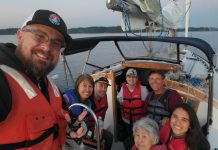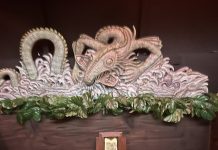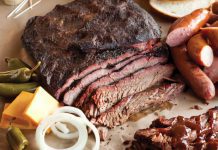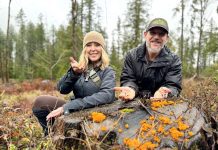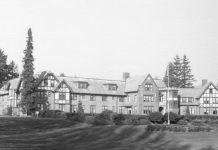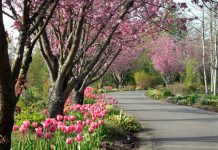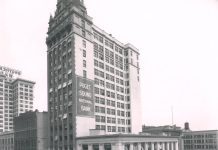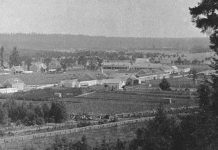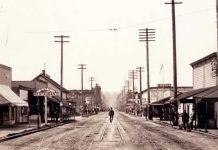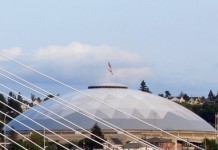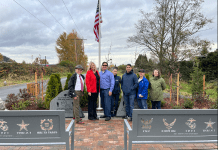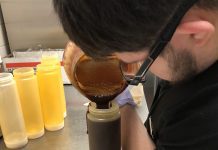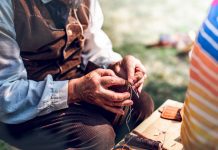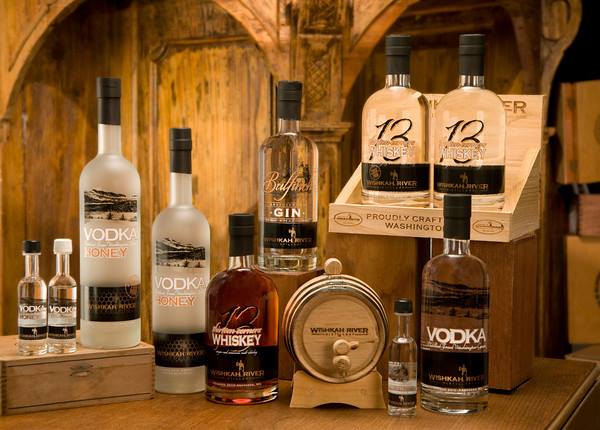Owning and operating a business is an immensely difficult task that most people on the outside have a hard time understanding. Wishkah River Distillery in Aberdeen not only has the regular operating hurdles to cross, but also the fact that expanding operations to other facilities is nearly impossible for this small business, as well as every other distillery in the Washington State. Due to this, co-owner and master distiller, Josh Mayr made the decision to sit on the Legislative Committee of the Washington State Distillers Guild to help drive his business, and the businesses of others, to the next phase of development.
Over the past few years, Mayr has been committed to educating himself and diving into the current legislative battle that surrounds distilleries and their capability to expand. As it currently stands, the primary problem that Washington State distilleries are faced with is that they are only permitted to operate tasting rooms where they physically distill. This is almost always at industrial or light industrial zoned locations. “Because of this, we are faced with a multitude of problems that hinder the distilleries’ ability to be as prosperous as they could be,” says Mayr.
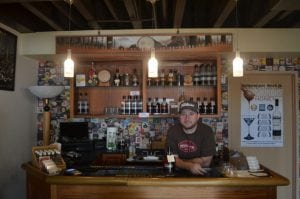
The massive scale of the problem can be more easily looked at when viewing Washington State as a whole. This region of the U.S. is one of the most rapidly developing areas for producers of a wide range of spirits that include rum, gin, brandy, whiskey, vodka, unique liqueurs and others. As of just a couple of years ago, the state had roughly 100 licensed distilleries, with the majority of them being located in King County and surrounding regions.
Distilleries cannot detach tasting rooms from the production centers, meaning that the location isn’t normally in a downtown corridor where the foot traffic is high, unlike wineries and breweries. To complicate matters even further, in these tasting rooms located at the industrial sites, distilleries are only certified to serve two ounces of spirits per person, each day, and these spirits cannot be mixed into cocktail form.
To try and balance this, Mayr has been resourceful and partnered with multiple local businesses to feature his products on their shelves where they can mix them into cocktails for customers. He also actively attends various events in Thurston, Grays Harbor and King County, where visitors have the opportunity to sample his products. An additional problem that distilleries in the state face is that in order to generate more revenue, they must package their products to sell on a massive scale competing against internationally known brands in local stores.
“It’s tough to try and create a name for yourself when one of the few options to generate awareness about your company is to be placed on shelves next to well-known brands that customers are accustom to purchasing,” explains Mayr. “Not having a tasting room in a central location means that people don’t even know where distilleries are situated or that they’re open to the public.”
As a result of these difficulties, Mayr has been closely involved in the past two legislative sessions in Olympia. During this past session in early 2018, Mayr and his fellow committee members pushed for legislation to expand retail capabilities and for two tasting rooms to be allowed to detach from production centers. Unfortunately, the Distillers Guild’s Bill HB 2609 did not get approved after passing Commerce and Gaming and Appropriations, which were enormous hurdles to cross. During 2019 and the months leading up to it, leadership roles can easily change, so it’s challenging to anticipate how upcoming bills will fair once the session picks up again.
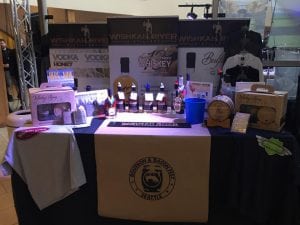
Dedication and persistence is what has kept Mayr pushing for change in the industry he’s so devoted to. The latest goal of the Washington State Distillers Guild has been putting together a public relations campaign focused on local distilleries communicating with legislators and explaining what’s required for them to be successful in the industry. Mayr is also involved in the Guild by interacting with other members as well as assisting the group’s plan to organize a large tour around Seattle, taking legislators to distilleries where they will hopefully recognize why the industry doesn’t thrive as it should.
Mayr hopes people will understand that distillery tasting rooms are meant to be a relaxing experience that inform visitors of the craft and offer tastings of quality products. Similar to wineries and breweries, Mayr is optimistic that the future will bring about a time when tasting rooms can be implemented into main downtown areas of cities where guests can sample uniquely crafted products in a convenient location. “When I first opened shop in Aberdeen, I never expected to be so involved in Olympia,” says Mayr. “However, I’m passionate about this industry and am happy to help other local distillers be successful.”
Learn more about the Washington State Distillers Guild here. You can also visit the Wishkah River Distillery’s website and follow them on Facebook.
Sponsored





